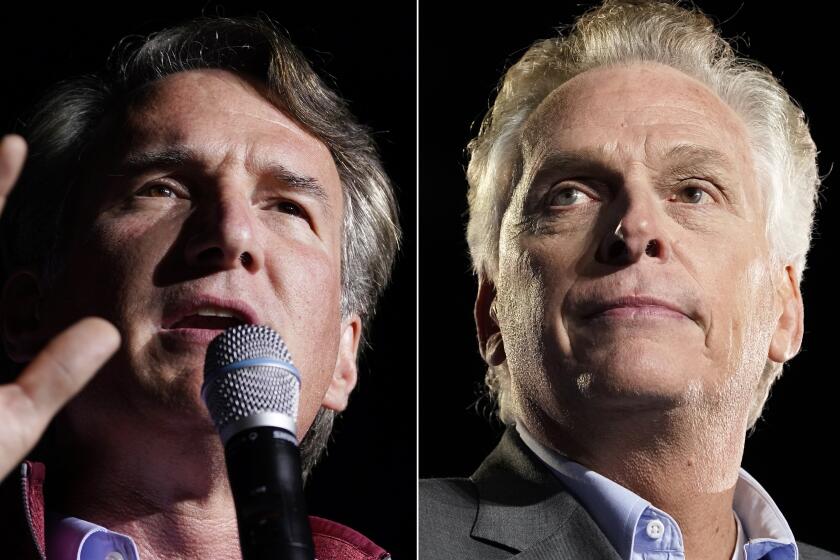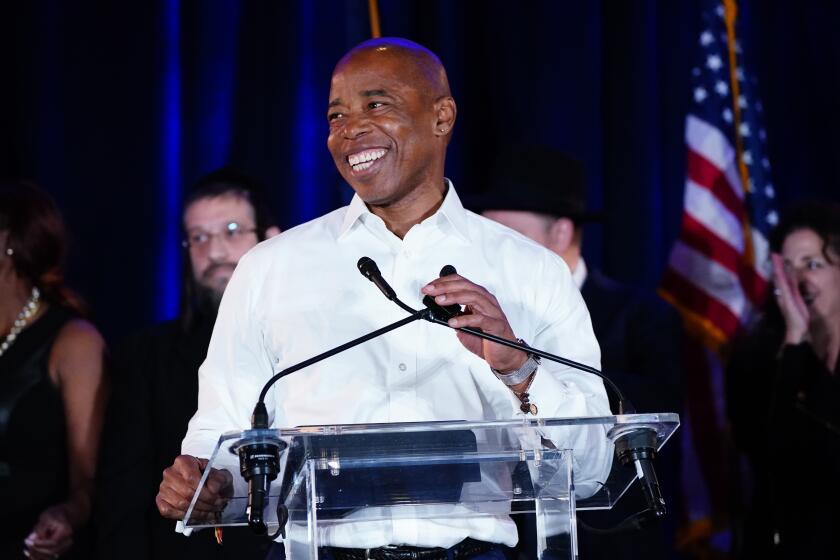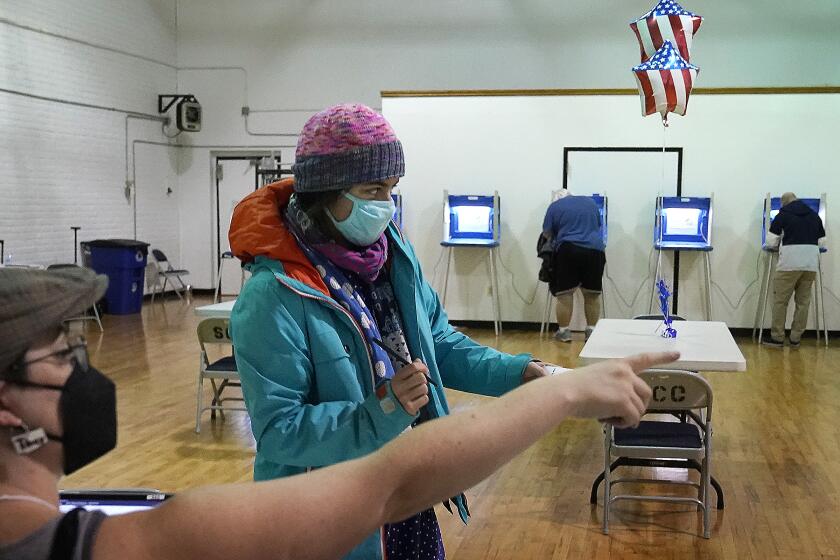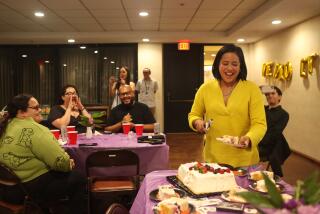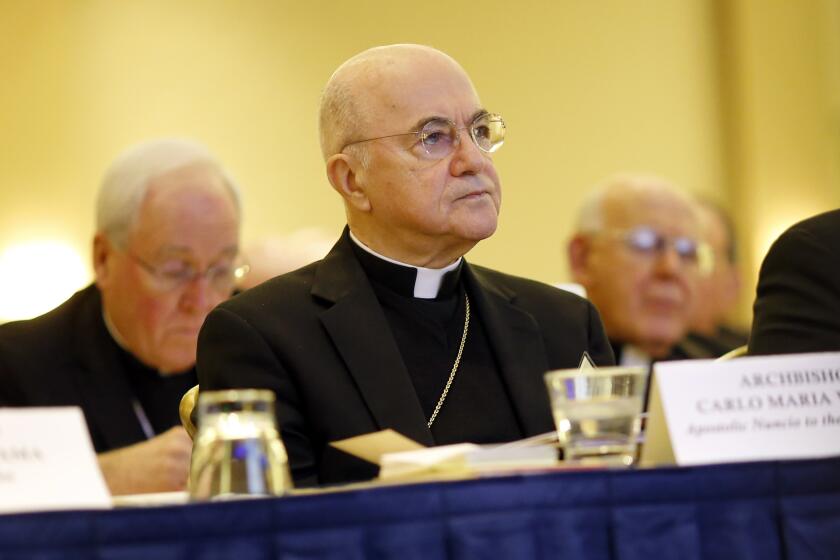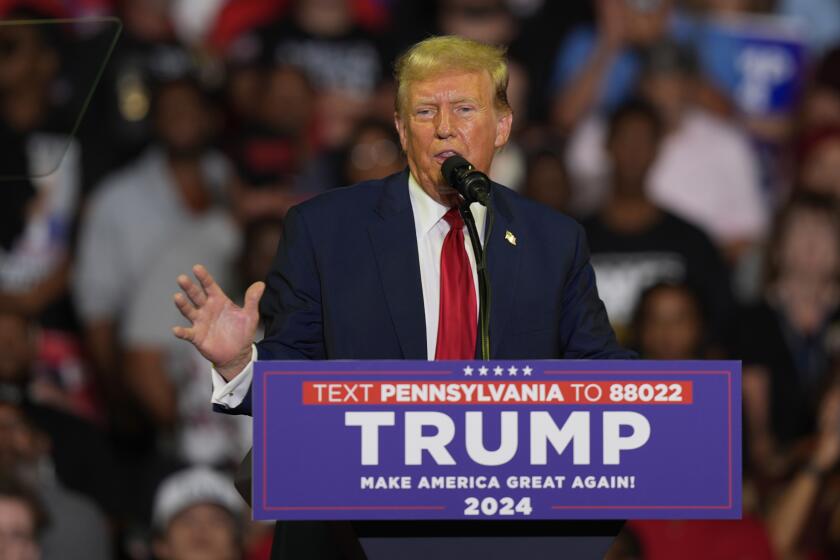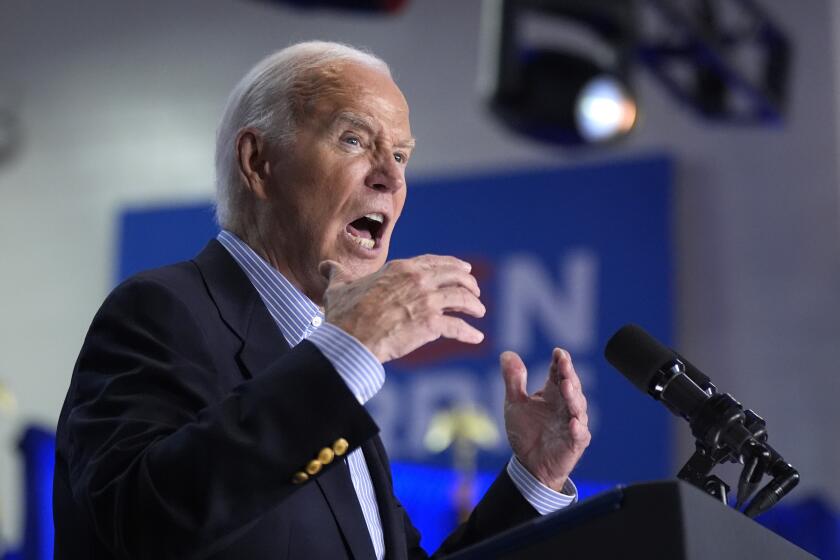Boston elects Michelle Wu as its first female and Asian American mayor

Boston voters for the first time elected an Asian American woman as mayor. The city had previously only elected white men as mayor.
Boston voters, marking a key milestone in the city’s long political history, for the first time elected a woman and an Asian American as mayor on Tuesday, tapping City Councilor Michelle Wu to serve in the city’s top political office.
Wu’s victory marks a turning point for the city. Boston had elected only white men as mayor before her.
“One of my sons asked me the other night if boys can be elected mayor of Boston,” Wu told supporters. “They have been, and they will again someday, but not tonight.”
The choice of Wu over fellow Boston City Councilor Annissa Essaibi George is just the latest marker of how much the Boston of not so long ago — known for its ethnic neighborhoods, glad-handing politicians and mayors with Irish surnames — is giving way to a new Boston.
Wu won’t have much time to revel in her win. She will be sworn in Nov. 16.
“We are ready to meet this moment. We are ready to become a Boston for everyone. We’re ready to be a Boston that doesn’t push people out but welcomes all who call our city home,” Wu said.
The Virginia governor’s race will offer a glimpse into the likely political dynamics of the 2022 midterms.
Just before Wu spoke, Essaibi George conceded the race.
“I want to offer a great big congratulations to Michelle Wu. She is the first woman, the first person of color and, as an Asian American, the first elected to be mayor of Boston,” Essaibi George told her supporters. “I know this is no small feat.”
Wu had racked up a series of high-profile endorsements, including support from acting Mayor Kim Janey, U.S. Sens. Elizabeth Warren (D-Mass.) and Edward J. Markey (D-Mass.), and U.S. Rep. Ayanna Pressley (D-Mass.), a former Boston city councilor and member of the “Squad” in Congress.
The election marks a pivotal moment for Boston, which has wrestled with racial strife throughout its history. Tensions spilled over into violence in the 1970s, when court-ordered desegregation of the city’s public schools led to the busing of Black students to predominantly white schools and white students to mostly Black schools.
Each of the five main mayoral candidates — all Democrats — had identified as a person of color.
The 36-year-old Wu, whose parents immigrated to the U.S. from Taiwan, grew up in Chicago and moved to Boston to attend Harvard University and Harvard Law School.
Former police Capt. Eric Adams easily won the race for New York mayor, and Boston elected its first woman and Asian American to the city’s top job.
Essaibi George, 47, a lifelong Boston resident and former public school teacher, describes herself as a first-generation Arab-Polish American. Her father was a Muslim immigrant from Tunisia. Her mother, a Catholic, immigrated from Poland.
With her victory in hand, it’s now up to Wu to try to make good on some of her sweeping proposals.
Two of Wu’s most ambitious pledges focus on housing and public transportation, familiar themes for the city’s 675,000 residents.
To help push back against soaring housing costs that have forced some former residents out of the city, Wu has promised to pursue rent stabilization or rent control. The biggest hurdle to that proposal is the fact that Massachusetts voters narrowly approved a 1994 ballot question banning rent control statewide.
Another of Wu’s top campaign promises is to create a “fare free” public transit system. Wu has said the proposal would strengthen the city’s economy, address climate change and help those who take the bus or subway to school or work.
As with the rent control pledge, Wu can’t as mayor unilaterally do away with fares on the public transit system, which is under the control of the Massachusetts Bay Transportation Authority.
Voters in Minneapolis decided not to replace the city’s police department with a new Department of Public Safety
Wu said she would try to work with partners in state government to make each proposal a reality.
“We don’t have to choose between generational change and keeping the streetlights on, between tackling big problems with bold solutions and filling our potholes,” she said.
Other challenges that Wu will have to grapple with as mayor include public education, policing, the city’s ongoing struggle with the COVID-19 pandemic, and the long-term effects of climate change on the coastal metropolis.
The election was also a test of whether voters in a city long dominated by parochial neighborhood politics was ready to tap someone like Wu not born and raised in the city.
Wu was first elected in 2013 at age 28, becoming the first Asian American woman to serve on the council. In 2016, she became the first woman of color to serve as president. Essaibi George was first elected to the council in 2015.
The election reflects an increasingly diverse Boston.
The latest U.S. census statistics show Boston residents who identify as white make up 44.6% of the population alongside Black residents (19.1%), Latino residents (18.7%) and residents of Asian descent (11.2%).
The city’s previous elected mayor — Democrat Marty Walsh — stepped down this year to become U.S. secretary of Labor under President Biden. Walsh was replaced on an acting basis by Janey, sworn in March 24 as Boston’s first female and first Black mayor.
More to Read
Start your day right
Sign up for Essential California for news, features and recommendations from the L.A. Times and beyond in your inbox six days a week.
You may occasionally receive promotional content from the Los Angeles Times.
